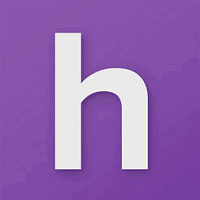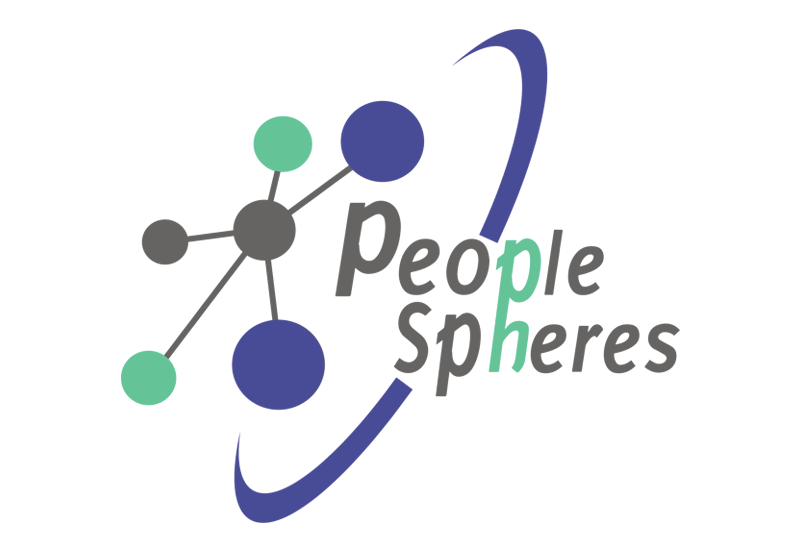Description

GoCo

Homebase

PeopleSpheres
Comprehensive Overview: GoCo vs Homebase vs PeopleSpheres
GoCo, Homebase, and PeopleSpheres are HR technology platforms that serve different yet overlapping aspects of human resource management. Here’s a comprehensive overview of each, focusing on their primary functions, target markets, market share, user base, and differentiating factors.
GoCo
a) Primary Functions and Target Markets:
- Primary Functions: GoCo offers a comprehensive suite of HR solutions including benefits administration, payroll management, onboarding, and time tracking. The platform is designed to streamline HR workflows and automate complex processes such as compliance and record keeping.
- Target Markets: GoCo primarily targets small to mid-sized businesses (SMBs) across various industries looking for an integrated HR software solution. Its user-friendly design appeals to companies that may not have a dedicated HR department but need efficient HR management.
b) Market Share and User Base:
- GoCo is a relatively competitive player in the HR technology space for SMBs. While it may not have the extensive market share of larger enterprise-focused platforms, it is well-regarded among smaller organizations for its ease of use and robust customer service. Specific market share figures are typically not disclosed, but its focus on SMBs suggests a moderate-sized user base relative to giants like ADP or Workday.
c) Key Differentiating Factors:
- Integration Capabilities: GoCo is known for its integration with a variety of third-party applications, which is crucial for businesses looking to maintain flexibility in their choice of tools.
- User Experience: The platform is praised for its intuitive interface and ability to simplify complex HR processes without needing extensive training.
Homebase
a) Primary Functions and Target Markets:
- Primary Functions: Homebase specializes in employee scheduling, time tracking, team communication, and payroll management. It is particularly designed to address the operational needs of businesses with shift-based and hourly workers.
- Target Markets: Homebase primarily targets small businesses in industries such as retail, hospitality, and food service. Businesses with significant hourly workforces benefit from its features.
b) Market Share and User Base:
- Homebase has a substantial presence in the market for hourly scheduling and time tracking, especially among small businesses. It is recognized as a leader in the space, often seen as a go-to solution for businesses needing straightforward workforce management tools. While exact numbers are not publicly detailed, Homebase's penetration in the retail and hospitality sectors is notably strong.
c) Key Differentiating Factors:
- Focus on Shift Workers: Homebase's features are tailored specifically to the needs of businesses with hourly and shift-based employees, providing tools like schedule generators and a mobile app for clocking in and out.
- Ease of Use and Setup: The platform is designed to be easy to implement, allowing businesses to set up quickly without requiring extensive IT resources.
PeopleSpheres
a) Primary Functions and Target Markets:
- Primary Functions: PeopleSpheres acts as an HR platform aggregator, connecting various HR software solutions into a centralized hub. It offers functionalities in core HR, talent management, payroll, and employee engagement through its partner network.
- Target Markets: PeopleSpheres targets mid-sized to large enterprises that already have multiple HR systems in place and are looking to integrate them seamlessly into a cohesive platform.
b) Market Share and User Base:
- PeopleSpheres has a niche position as an integrative solution for larger companies, particularly those in Europe. While it may not have a broad standalone user base, its value lies in enhancing the functionality of existing systems for its clients.
c) Key Differentiating Factors:
- Integration Focus: Unlike many HR platforms that try to offer an all-in-one solution, PeopleSpheres excels in connectivity and integration, unifying disparate HR systems under a single dashboard.
- Customization and Flexibility: The platform allows for a high degree of customization, letting businesses tailor their HR processes according to their unique needs and existing technology stack.
Comparative Analysis
When comparing these three products, several key aspects should be noted:
- Market Focus: GoCo and Homebase primarily serve the SMB sector, though Homebase has a stronger focus on industries relying heavily on shift work. PeopleSpheres, in contrast, is better suited for larger enterprises needing system integration.
- Core Functionality: GoCo is an all-round HR solution, Homebase excels in scheduling and time management, and PeopleSpheres focuses on integration.
- Ease of Use: While all platforms emphasize user-friendly interfaces, Homebase is particularly streamlined for quick deployment, highlighting its suitability for immediate operational needs in small business environments.
- User Base and Market Presence: Homebase likely has a larger proportion of the SMB market given its tenure and specialization, while GoCo’s market share reflects its broader HR functionality. PeopleSpheres serves more as an integrative layer on top of other solutions, catering to enterprises looking to unify their HR technologies.
In conclusion, the choice between these platforms largely hinges on the specific requirements and existing infrastructure of a business, the complexity of HR needs, and the type of workforce management required.
Contact Info

Year founded :
2019
Not Available
Not Available
India
Not Available

Year founded :
1986
Not Available
Not Available
United States
Not Available

Year founded :
2015
+33 1 77 69 49 70
Not Available
France
http://www.linkedin.com/company/peoplespheres
Feature Similarity Breakdown: GoCo, Homebase, PeopleSpheres
To provide a detailed feature similarity breakdown for GoCo, Homebase, and PeopleSpheres, let's analyze each point.
a) Core Features in Common
-
Employee Management: All three platforms offer tools for managing employee information, including onboarding and offboarding processes.
-
Time and Attendance: They provide features for tracking employees' time worked, shift scheduling, and managing time-off requests.
-
Payroll Integration: Each solution integrates with various payroll systems to streamline payroll processing and compliance.
-
Compliance Management: These platforms offer compliance tools to help companies adhere to labor laws and regulations.
-
Performance Management: They all have performance management features that help in setting goals, conducting appraisals, and monitoring employee performance.
-
Benefits Administration: Though to varying extents, each tool assists with benefits management, facilitating enrollment and management of employee benefits.
b) User Interface Comparison
-
GoCo: Known for its clean and intuitive interface, GoCo offers a user-friendly experience with a focus on simplicity and ease of navigation. It provides a dashboard that is straightforward and enables quick access to essential functions.
-
Homebase: Homebase emphasizes ease of use, particularly for smaller businesses. Its UI is simple and accessible, often praised for its mobile-friendliness, which is crucial for managers on the go. However, it may come across as less sophisticated compared to more comprehensive platforms aimed at larger enterprises.
-
PeopleSpheres: As a more modular and customizable platform, PeopleSpheres boasts a flexible and modern interface. Its strength lies in its configurability, allowing businesses to tailor the UI and workflows to their specific needs.
c) Unique Features
-
GoCo:
- Automatic Benefits Administration: GoCo offers strong automation in benefits management, reducing manual steps for HR teams.
- Custom Workflows: Provides the ability to create custom automated workflows to suit specific business processes and needs.
-
Homebase:
- Focus on Small Businesses: Homebase is uniquely designed to cater to the needs of small and growing businesses, offering affordable pricing and features that are perfect for teams with shift-based work patterns.
- Free Basic Version: Provides a free tier, which is particularly beneficial for very small teams or startups with limited resources.
-
PeopleSpheres:
- Modular Integration Platform: Allows companies to connect and unify various HR systems using PeopleSpheres as a central hub.
- Customizable Employee Portals: Unlike most HR platforms, PeopleSpheres offers highly customizable employee portals for personalized user experiences.
Overall, while GoCo, Homebase, and PeopleSpheres share several common core features essential for HR management, they each have distinct strengths and unique features that cater to different business needs and sizes. GoCo and PeopleSpheres offer more advanced customizations and integrations suitable for larger or more diverse organizations. In contrast, Homebase's ease of use and affordability suit small businesses and startups exceptionally well.
Features

Document Management
Payroll and Benefits Administration
Performance Management
Human Resources Management

Team Communication
Employee Management
Time Tracking and Timesheets
Payroll Management
Easy Employee Scheduling

Data Analytics and Reporting
Employee Engagement Tools
Centralized Employee Management
Compliance and Security
Integration with Existing Tools
Best Fit Use Cases: GoCo, Homebase, PeopleSpheres
To understand the best fit use cases for GoCo, Homebase, and PeopleSpheres, let's break down each platform in terms of their ideal business types, scenarios for preferred use, and suitability for different industries and company sizes.
a) GoCo
Types of Businesses or Projects:
- Small to Medium-Sized Enterprises (SMEs): GoCo is designed with the flexibility and scalability that suit SMEs looking for comprehensive HR and benefits administration.
- Companies Needing Integrated HR Solutions: Businesses that need an all-in-one HR platform for benefits, payroll, and compliance will find GoCo beneficial.
Best Fit Use Cases:
- HR Automation: Companies looking to automate human resources processes like onboarding, benefits enrollment, and compliance tracking.
- Benefits Administration: GoCo excels in environments where benefits management is complex due to multiple benefit offerings, making it a good fit for businesses that prioritize employee benefits as a key aspect of their HR strategy.
b) Homebase
Scenarios for Preferred Option:
- Retail, Hospitality, and Food Services: Homebase is specifically tailored for businesses with shift workers and hourly employees such as restaurants, retail stores, and hospitality services.
- Scheduling and Time-Tracking Needs: It is ideal for businesses that require robust scheduling and time-tracking features without the overhead of more comprehensive HR management systems.
Best Fit Use Cases:
- Employee Scheduling: Businesses that need an easy-to-use platform for creating, managing, and sharing employee schedules.
- Time & Attendance: Organizations requiring streamlined time tracking that integrates with payroll systems to manage wages for hourly employees efficiently.
c) PeopleSpheres
When to Consider Over Other Options:
- Large Enterprises with Complex HR Needs: PeopleSpheres is particularly suitable for larger organizations that need to integrate various HR systems into a single, unified platform.
- Customizable HR Solutions: Businesses that require a high level of customization in connecting different HR software into an overarching HR system would benefit from PeopleSpheres.
Best Fit Use Cases:
- HR Integration: For businesses with existing HR software tools that they want to continue using but need a unified interface for better data accessibility and process integration.
- HR Analytics and Reporting: Enterprises that prioritize advanced analytics and reporting capabilities for strategic decision-making.
d) Catering to Different Industry Verticals or Company Sizes
-
GoCo: Focuses on providing comprehensive HR services, making it well-rounded for industries from technology to services where benefits and compliance are critical. It effectively scales with companies as they grow, making it suitable for both SMEs and growing enterprises.
-
Homebase: Best serves industries with a large base of hourly workers where time-tracking and scheduling are more pertinent, such as retail, restaurants, and hospitality. It is optimized for small to medium businesses looking for ease of use and cost-effective solutions.
-
PeopleSpheres: Ideal for larger organizations in complex sectors such as finance, healthcare, or manufacturing where varied HR applications need to be seamlessly integrated. It is designed to handle complexities in HR processes and data that are typical in larger, multi-departmental organizations.
Each platform caters to distinct needs based on company size, industry requirements, and the level of integration or specialization required, allowing businesses to choose the one that aligns best with their operational and strategic HR goals.
Pricing

Pricing Not Available

Pricing Not Available

Pricing Not Available
Metrics History
Metrics History
Comparing teamSize across companies
Conclusion & Final Verdict: GoCo vs Homebase vs PeopleSpheres
When evaluating HR management tools like GoCo, Homebase, and PeopleSpheres, it’s important to assess the overall value they offer based on factors like features, ease of use, pricing, customer support, and scalability. Here’s a conclusion with respect to each of these products:
a) Best Overall Value:
- GoCo might be considered the best overall value for small to medium-sized enterprises (SMEs) who need a comprehensive HR solution with benefits administration and payroll integration capabilities. It is well-suited for companies that require a robust platform with customization options.
b) Pros and Cons of Each Product:
-
GoCo:
- Pros:
- Comprehensive HR services including benefits administration, payroll integration, and compliance management.
- Intuitive and customizable interface.
- Strong customer support with personalized assistance.
- Cons:
- May not scale well with very large enterprises.
- Pricing can be higher compared to more focused solutions.
- Pros:
-
Homebase:
- Pros:
- Excellent for hourly workforce management with features like scheduling, time tracking, and team communication.
- Affordable and even free for basic use, ideal for startups and small businesses.
- User-friendly interface tailored for quick deployment.
- Cons:
- Limited features for comprehensive HR management (e.g., no benefits administration).
- Not ideal for larger organizations with complex HR needs.
- Pros:
-
PeopleSpheres:
- Pros:
- Highly integrative, offering a flexible HR ecosystem that can connect with multiple HR tools.
- Good for businesses with specific needs that require niche solutions in different areas.
- Offers a high degree of customization.
- Cons:
- May be complex to set up and require a certain level of HR expertise to fully utilize.
- Potentially higher cost due to its modular nature and integration capabilities.
- Pros:
c) Recommendations:
-
For small businesses or startups with a focus on time tracking and scheduling, Homebase is a budget-friendly option that effectively addresses those needs.
-
Companies seeking a comprehensive HR platform with integrated payroll and benefits administration should consider GoCo for its all-in-one approach and ease of use.
-
Organizations with complex or niche HR requirements that want to leverage existing tools through integration should look into PeopleSpheres, which offers flexibility and modularity.
Ultimately, the choice among GoCo, Homebase, and PeopleSpheres should be driven by your specific HR needs, company size, budget, and the extent of customization or integration required. Evaluating trial versions or demos can provide further clarity on which solution aligns best with your organization's objectives.